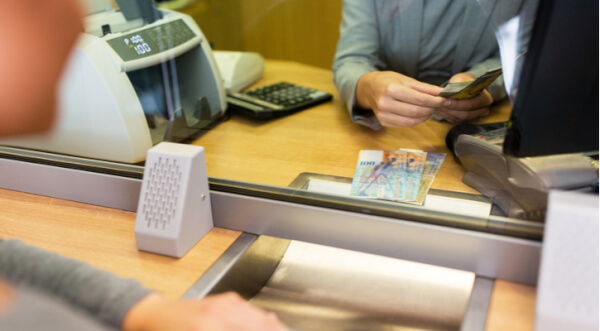Card payments abroad from France: what are the fees and how to reduce them?
Learn about the fees associated with card payments abroad and ways to reduce them to save money when traveling.

Planning a holiday or business trip abroad? If you're heading outside the Eurozone, you’ll need to prepare for expenses in a foreign currency.
Using your Caisse d’Epargne bank card can be convenient — but be aware of hidden fees and unexpected charges that might spoil your trip.
Caisse d’Epargne offers several international card options, but every transaction abroad involving a currency conversion can add up in costs.
If you’re looking for an alternative for international payments and withdrawals, a Wise account and debit card could be ideal. It lets you spend abroad while keeping your budget under control.
International travel requires careful preparation. Beyond your passport, visa, and vaccinations, don’t forget to check your payment options.
It may sound obvious, but not all Caisse d’Epargne cards can be used outside France. Some are restricted to domestic transactions.
To avoid being stranded without access to cash, check with your branch before your trip to confirm your card works internationally.
It’s important to notify your bank before going abroad. If not, your card might be blocked for suspected fraudulent activity.
Call your Caisse d’Epargne advisor a few days before departure.
Visa and Mastercard are both widely accepted globally, but they may differ in terms of fees and benefits.
Compare card types and the services each offers through Caisse d’Epargne before choosing the one that best suits your travel needs.
When traveling, it’s easy to overspend. Caisse d’Epargne sets daily withdrawal limits to prevent fraud, which might be lower than you expect.
You can adjust your withdrawal limits easily in your online account before leaving.
Losing your card abroad is stressful, but acting quickly helps minimize damage. Note the Caisse d’Epargne Opposition Centre number: 09 69 36 39 39 and keep it somewhere safe (but not in your wallet).
Before you leave, verify that your card is still valid. The expiry date appears under the card number — an expired card won’t work abroad.
Using your card abroad isn’t free. The fees below are indicative and may vary depending on your regional Caisse d’Epargne branch. Always confirm the latest rates with your bank.
Example: Caisse d’Epargne Île-de-France fees for foreign currency withdrawals (non-Eurozone):¹
| Fees | At another bank’s ATM | At a branch |
|---|---|---|
| Fixed fee | €3.20 | €6.25 |
| Percentage fee | 2.80% | 2.80% |
| Fixed fee | Percentage fee |
|---|---|
| €1 | 2.80% |
Note: Currency conversion fees are added to these costs and depend on the exchange rate applied by your bank.¹
Some Caisse d’Epargne customers can benefit from reduced international withdrawal rates. For example, clients aged 12 to 25 can withdraw outside the Eurozone free of charge, regardless of their travel package.¹
Using an ATM within Caisse d’Epargne’s global partner network can help reduce fees.
Each withdrawal carries fixed and variable costs. Instead of multiple small withdrawals, take out a larger amount at once to save on fees.
Whenever possible, pay directly by card. Payment fees are generally lower than withdrawal fees abroad.
If you travel frequently, ask about Caisse d’Epargne’s international options. These can include benefits like commission-free withdrawals.¹
However, keep in mind that you may still pay foreign bank and currency conversion fees.
Prepaid and multi-currency cards can help you save on exchange fees.
You load your travel funds in advance — already converted into the desired currency — and spend locally.
A Wise account offers similar flexibility with a built-in multi-currency card.
With the Wise card:
Each international withdrawal or payment can trigger unexpected extra costs.
Compare exchange rates before using a bureau de change. Choose one offering a rate closest to the mid-market rate to avoid unnecessary losses.
When you withdraw from an ATM abroad, local banks may charge a fee — in addition to Caisse d’Epargne’s own commission.¹
If prompted to choose a currency conversion method, always select the local currency to avoid double conversions at poor rates.
Wise offers a transparent, low-cost alternative for international transactions.
With the Wise card:
Source:
Last verified on September 18, 2025.
This article is a translation of the original article published in French and was translated within 365 days of publication. While the content has been translated for accessibility, the data and sources referenced have not been updated since the original publication date.
*Please see terms of use and product availability for your region or visit Wise fees and pricing for the most up to date pricing and fee information.
This publication is provided for general information purposes and does not constitute legal, tax or other professional advice from Wise Payments Limited or its subsidiaries and its affiliates, and it is not intended as a substitute for obtaining advice from a financial advisor or any other professional.
We make no representations, warranties or guarantees, whether expressed or implied, that the content in the publication is accurate, complete or up to date.

Learn about the fees associated with card payments abroad and ways to reduce them to save money when traveling.

Société Générale charges fees and commissions on transactions in foreign currency outside France. Learn more here.

Learn how exchange fees and commissions work and what ways and practices you can use to save on all your currency conversions.

Learn all about foreign withdrawal fees with Banque Populaire: how much does it cost? What is the exchange rate? How can you save?

Find out how to get the best exchange rate at Paris exchange offices. Avoid hidden fees and get tips for exchanging your money.